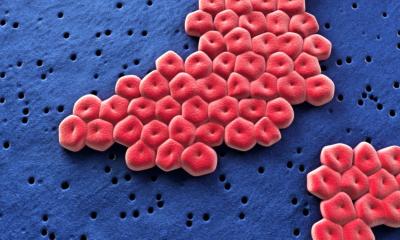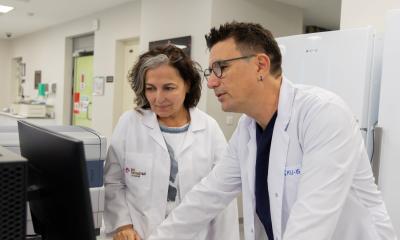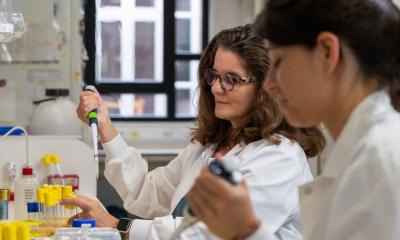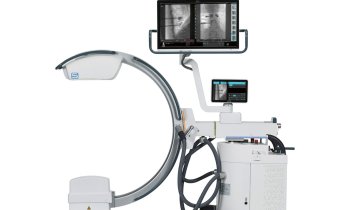News • CD4-PP vs. UTI
Reducing the risk of infection for patients with urinary catheters
Patients with indwelling catheters through the urethra often suffer from bacterial infections. A newly discovered synthetic peptide is a promising treatment option, even agains antibiotic-resistant pathogens.

Image source: Karolinska Institutet; photo: Johannes Frandsén
The study, published in the journal Cellular and Molecular Life Sciences, opens up for new possible treatment methods.
Patients, who are treated with indwelling catheters through the urethra, often have bacterial colonisation in their urine after a period of time. However, these bacteria can cause infections that are sometimes difficult to treat and can even be life-threatening. “Increased antibiotic resistance further reduces the chances of successful treatment, therefore alternatives to traditional antibiotic treatment are an important aspect,” says John Kerr White, researcher at the Department of Microbiology, Tumor and Cell Biology, Solna, Karolinska Institutet, and shared first author.
A possible alternative treatment focuses on the use of antimicrobial peptides, naturally found in the body. They have among other things, antibacterial qualities, but the disadvantage is their relatively short lifespan. In recent years, antimicrobial peptides have been synthetically developed to improve their stability and efficacy against bacteria, whilst being harmless to the body's own cells.

Image source: Karolinska Institutet; photo: Johannes Frandsén
Annelie Brauner's research group has studied a specific synthetic antimicrobial peptide, CD4-PP, which was developed by professor Ulf Göransson´s research group, Uppsala University. In the study, the researchers examined what effect CD4-PP had on the most common bacterial strains that cause urinary tract infections, such as E. coli, K. pneumoniae and P. aeruginosa. “The study shows that CD4-PP has good bactericidal effect against these urinary tract bacteria as well as being effective against antibiotic-resistant bacteria, which can be very difficult to treat," says Annelie Brauner, professor of Clinical microbiology, at the Department of Microbiology, Tumor and Cell Biology, Solna, Karolinska Institutet, and the study's senior author.
CD4-PP was also shown to be active against biofilm, a kind of mucus blanket that bacteria form, which increases their resistance to the body's immune system as well as to different antibiotics. CD4-PP was found to prevent the formation of new biofilm and also dissolved existing biofilm. The beneficial effect was further enhanced by the fact that CD4-PP also activated the immune system to protect cells against infection.
Preventing bacteria from attaching to the catheter itself is an important part of reducing the risk of infections. “When we applied CD4-PP together with a saline fluid on urinary catheters, we found that the adhesion of E. coli to the catheters decreased. Since bacterial adhesion is the first step of the infection process, this effect is important in preventing urinary tract infections. We now plan to further develop and refine how CD4-PP can be applied when using catheters. We will also be investigating how CD4-PP reacts to other types of bacterial strains, such as those that cause infections in wounds”, says Annelie Brauner.
Source: Karolinska Institutet
26.07.2022











